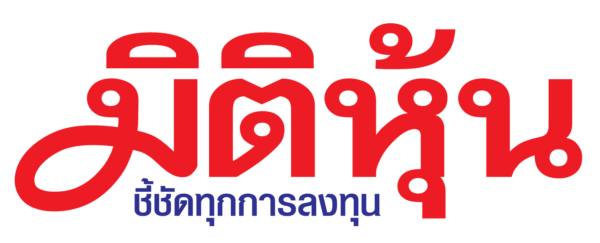
Mitihon – In an era where Artificial Intelligence (AI) plays a crucial role in driving all sectors of the digital economy—finance, healthcare, transportation, and manufacturing, AI’s capability to enhance operational efficiency and foster innovation has become a key factor in a country’s competitiveness. However, alongside these benefits, cyber threats associated with AI are rapidly increasing. Cybercriminals now leverage Generative AI (GenAI) to develop sophisticated Phishing Campaigns, Deepfake content, and Zero-Day Exploits that are easier to access and deploy against users. These threats pose risks to organizations in terms of data, reputation, and credibility.
Mr. Atthapol Payak, Acting Managing Director of CyberGenics Co., Ltd., a subsidiary of G-Able Public Company Limited, a leading provider of comprehensive cybersecurity solutions, stated:
“AI security is not just about protecting AI but about safeguarding the digital economy at the national level. AI security goes beyond merely preventing system breaches or securing AI models. It also involves risk management associated with the training data used to train AI systems, enabling them to learn and understand various patterns or rules, the AI models and systems created through data learning processes for analysis, prediction, decision-making, or performing tasks on behalf of humans, as well as the underlying infrastructure that supports the functioning of the entire AI ecosystem.
Leading global organizations such as the World Economic Forum (WEF) and NIST have emphasized the importance of AI governance and building AI trust through various frameworks, including:
• NIST AI RMF (Risk Management Framework): To identify risks and control AI to ensure safety and transparency.
- ISO 42001: 2023 AIMS (AI Management System): A standard for managing AI in compliance with laws and ethics.
- OWASP Top 10 LLM Risks: Identifying the main vulnerabilities of AI in the form of Large Language Models, such as Prompt Injection, Data Leakage, etc.
According to information from the World Economic Forum (WEF), an interesting case study has been identified involving AI-Enhanced Fraud and Deepfake in Southeast Asia. The story of Arup, a leading global engineering company, was revealed, where criminals used Deepfake Video and AI-Generated Voice to impersonate senior executives, convincing employees to transfer millions of dollars without any IT system breaches. This incident demonstrates that AI-Enhanced Social Engineering is a significant threat that organizations in Thailand must prepare for, focusing on both cybersecurity awareness and measures or guidelines designed to protect AI systems from attacks, damage, data leakage, or misuse (AI security measures).
The approach to managing AI security, which will help strengthen Thailand’s digital economy sustainably in the future, consists of four main components:
- Risk Assessment: Analyzing risks associated with AI usage across all dimensions, including technology, ethics, and legal aspects.
- Enhance Security Controls: Applying the concept of Secure by Design from the AI development stage, such as data encryption or Prompt Injection prevention.
- Global Collaboration: Sharing threat intelligence and establishing cybersecurity standards in collaboration with global organizations.
- Human Capacity Building: Conducting training and upskilling personnel to become proficient in AI security and AI governance skills.
If the four main components mentioned above are connected to the context of the public sector and various business organizations, reflecting the current direction of AI security in Thailand, it becomes clear which areas need to be strengthened to enhance AI security capabilities in several aspects, including:
- Policies and Regulatory Frameworks for AI Security: National policies on AI Governance and Cybersecurity. Following the announcement of Thailand’s “National AI Strategy,” which aims to drive the economy with AI, there is still a lack of clear frameworks for governing AI Trust, Risk, and Security, similar to the EU AI Act or NIST AI RMF. Thailand must urgently develop AI Governance and Cybersecurity frameworks that align with international standards to prevent Shadow AI and enhance transparency in AI usage. This presents an opportunity to develop laws and standards suitable for the Thai context.
- Strengthening AI Security Infrastructure: According to WEF Global Cybersecurity Outlook 2025, 66% of organizations worldwide expect AI to play a crucial role in cybersecurity by 2025. However, only 37% have measures to verify AI security before deployment. Business organizations should establish an AI Security Platform (AISP) to manage Prompt Injection Detection, Model Risk Management, RAG Security, and AI Supply Chain Security, covering Vector Database, Cloud Infrastructure, and AI Application, reducing risks from Shadow AI and Supply Chain Attacks.
- Enhancing Workforce Capacity in AI Security Skills: Both public and private sector personnel must be upskilled in AI security. The Cybersecurity Skills Gap, especially in AI security, remains a significant challenge. Developing courses on AI security, AI governance, and AI ethics is necessary to ensure a sufficient workforce with specialized skills to meet future demand.
- Building Regional and Global Collaboration: If Thailand collaborates with organizations such as the WEF AI Governance Alliance or CSA AI Safety, exchanging policy frameworks and Threat Intelligence, it will help enhance Thailand’s AI security standards to be globally recognized.”
“Because secure AI technology is the key to Thailand’s sustainable future, AI security is not an option but a necessity that plays a crucial role in driving Thailand’s digital economy. As a leading organization in enterprise-level cybersecurity, CyberGenics remains prepared to support Thai businesses in managing AI risks and continuously building a secure and trustworthy AI ecosystem, enabling organizations across all industries to drive sustainable growth toward their goals,” Mr. Atthapol concluded.
ติดตามช่องทางมิติหุ้นเพื่อรับข่าวสารตลาดทุนได้ตามลิงค์ด้านล่าง
Web : https://www.mitihoon.com/
Facebook : https://www.facebook.com/mitihoon
Youtube : https://www.youtube.com/@mitihoonofficial7770
Tiktok : www.tiktok.com/@mitihoon























